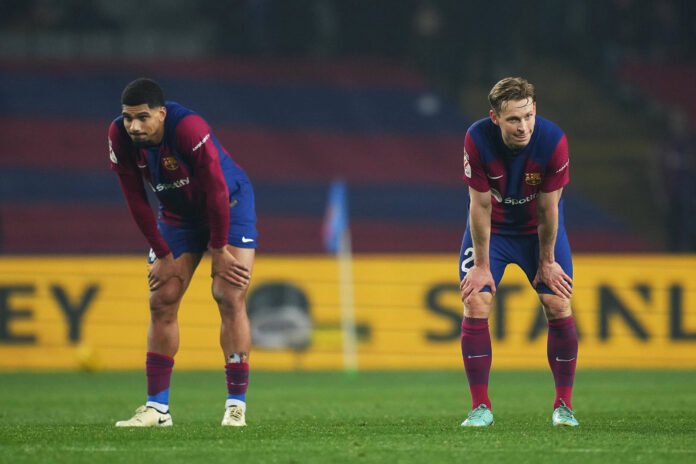Barcelona have been ordered to pay €22.7million (£19.4m, $24.4m) after they were ruled to have incorrectly paid tax on player agent fees between 2012 and 2015.
Spain’s National Court has upheld the penalty imposed by the Resolution of the Central Economic Administrative Court (TEAC), after Barcelona appealed its decision in 2020.
Barcelona say they will appeal the National Court’s decision to the Spanish Supreme Court.
The issue, as the National Court says, comes from the nature of services provided by players’ agents.
The state argued that agents provide a service to their players — not the clubs — and therefore Barcelona’s payments to them should be subject to personal income tax.
Barcelona argued the opposite — that agents provide a service to the club and their fees should not be attributed as payments to their players.
The court, though, says it is “abundantly clear” from the TEAC’s case that there has been tax simulation.
As defined in the court ruling, tax simulation is “the use of artifices directed towards tax avoidance, to enjoy fiscal benefits that do not correspond to the actual transition carried out” in order to get “more favourable” treatment than would otherwise have been the case.
The ruling says that the Inspectorate — the body responsible for ensuring that the tax regulations are correctly followed — “concludes that the relationship between Barcelona and the agents only serves to cover the payments made by the club to the players. This assessment is shared by the Chamber (of the National Court)”.
“The club (Barcelona) appears to be paying the agent for services that do not exist,” the National Court ruling adds, “when in reality it is paying part of the player’s remuneration in this way for the services they provide to the club, with the corresponding tax implications, which affect the IS (corporation tax), VAT and IRPF (personal income tax), distorting the taxable base for these tax concepts.”
The ruling adds that Barcelona’s missed taxes amount to €8.7m, with additional penalties of €3m, €4.3m, €5.2m and €1.4m for 2012, 2013, 2014 and 2015 respectively were imposed.
(Alex Caparros/Getty Images)
Read the full article here


